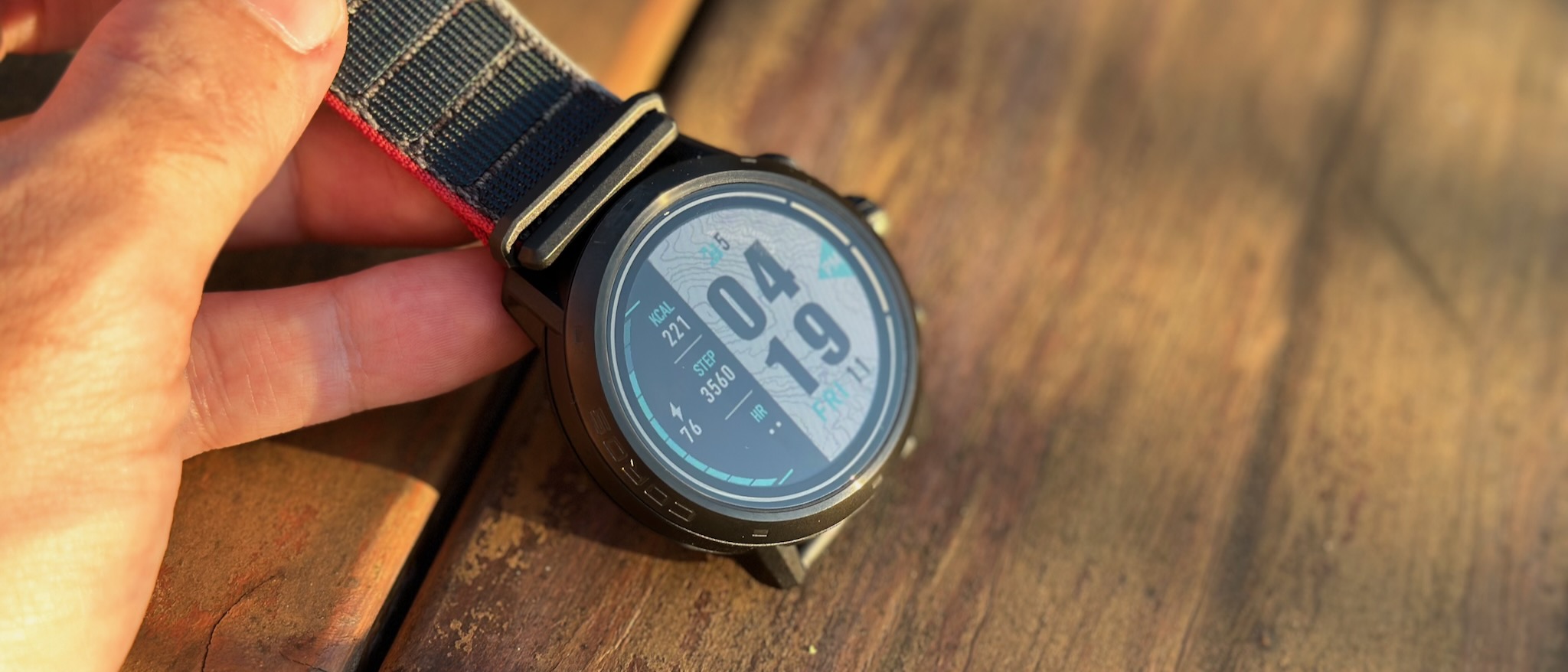Android Central Verdict
The COROS APEX 2 Pro is a pricey but impressive multi-sport watch that takes all the perks of the APEX 2 and adds dual-frequency tracking, a ridiculously long-lasting battery, built-in topographical maps, more music storage, and a Multi-Pitch Climb mode. But the core experience is the same across both models, and this model has the disadvantage of being significantly larger than many athletes will want on their wrists.
Pros
- +
75-hour GPS / 26-hour Dual-frequency All-Systems tracking
- +
32GB storage for MP3s, GPX maps
- +
COROS EvoLab metrics
- +
Accurate heart rate, SpO2 sensors
Cons
- -
Heavier and thicker than most running watches
- -
An expensive price tag
- -
No continuous HRV, SpO2 data
Why you can trust Android Central
COROS does an excellent job of cramming a ton of useful features into its affordable running watches, undercutting the prices of other brands. The "problem" with this is that, when the COROS PACE 2 and APEX 2 give you a ton of perks at the $200 and $400 tiers, the company may have run out of "premium" perks to add to the COROS APEX 2 Pro.
I gave the COROS APEX 2 a very positive review, praising it for its detailed metrics, durable design, long-lasting battery, and perks like All-Systems GNSS tracking while noting that its bulky design may not work for everyone. Well, if you spend a bit more, the APEX 2 Pro is the beefier older sibling with even longer battery life and more accurate GPS data — but surprisingly, doesn't have many other differences to justify the Pro label.
That APEX 2 review will give you a lot of useful context to compare against this Pro review since the two running watches share 90% of their features and specifications. This COROS APEX 2 Pro review will cover some of the same ground while focusing on those few upgrades to help you decide whether or not you need them.
Long story short, I'd recommend the COROS APEX 2 over the APEX 2 Pro, but the Pro will appeal to a certain class of multisport adventurers and athletes.
COROS APEX 2 Pro: Price and availability
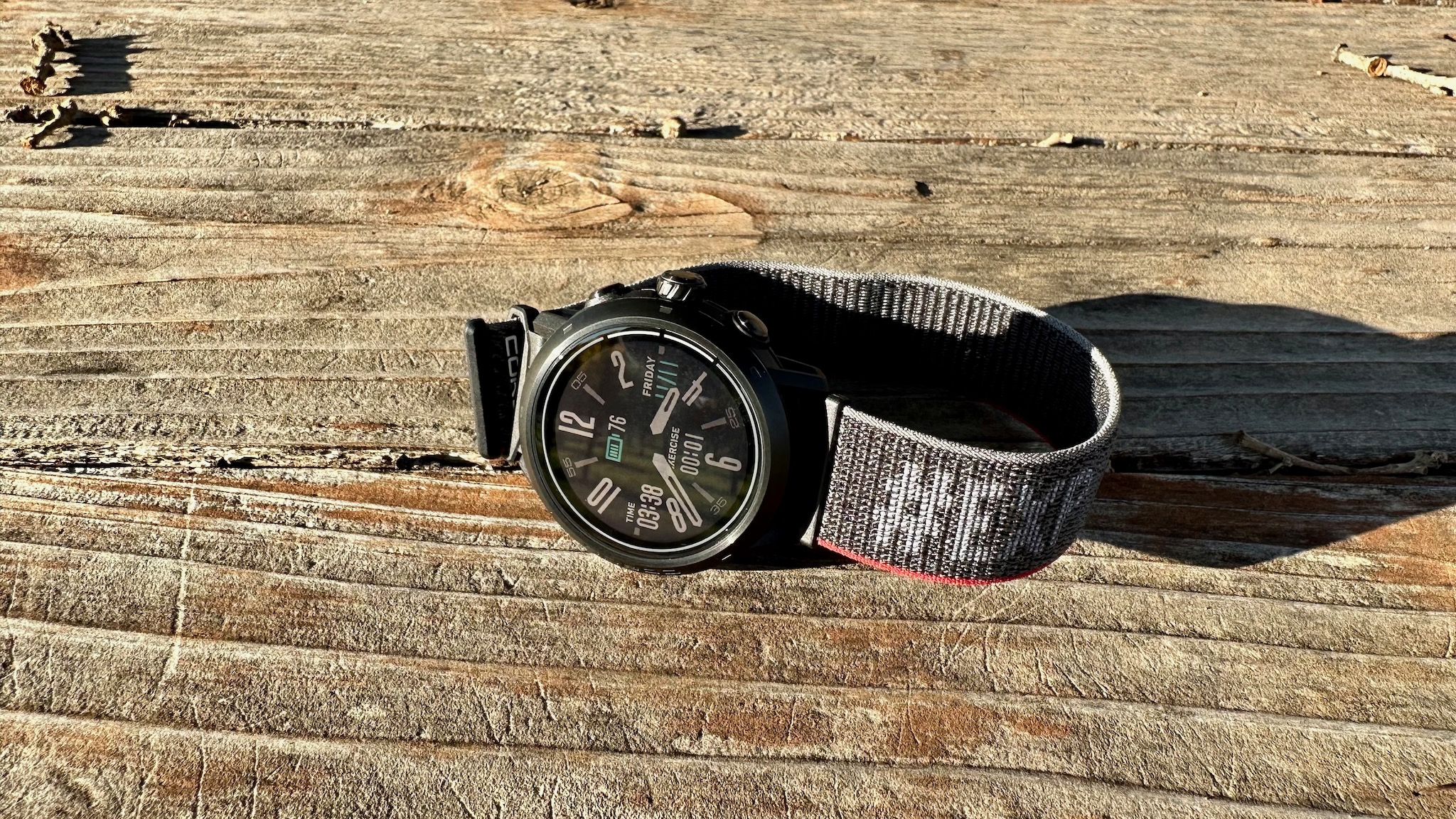
The COROS APEX 2 Pro launched on November 3, 2022, and costs $499 / $699 CAD / £499 / €579 / $859 AUD. It is available in the United States, United Kingdom, Canada, France, Germany, Australia, China, and Japan.
As of publication, the APEX 2 Pro is only available on the COROS website, but will eventually come to Amazon and other worldwide retailers. It comes in Grey, Black, or Green, and you can pay $29 extra to get a silicone band in addition to the bundled nylon band.
COROS APEX 2 Pro: What you'll like
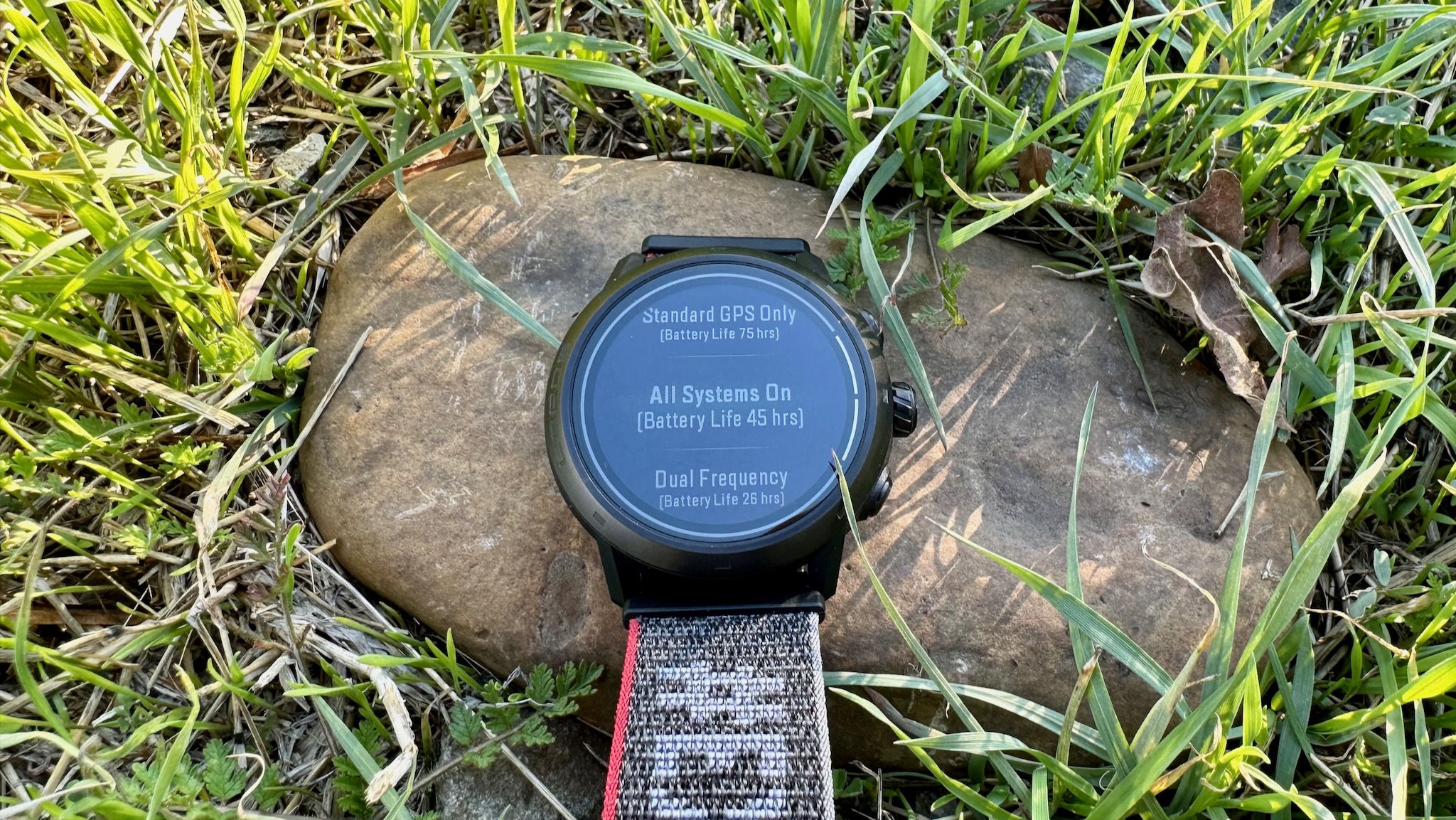
I'll be upfront about how, exactly, the COROS APEX 2 Pro beats the APEX 2, and save the downsides for the following section. First and foremost is that the Pro lasts 30 days in standard smartwatch mode, while the APEX 2 only hits 17 days (which is still top-tier for fitness smartwatches, to be fair). Outside of a non-touch, auto-recharging watch like the Garmin Instinct 2 Solar, you'll have trouble finding anything better.
It won't actually last that long with regular GPS tracking, but it barely loses battery while idling or receiving notifications. And with actual GNSS tracking, it can last 75 hours in GPS mode; with other watches, you'd need to be in max battery mode that checks location every minute to last that long, rather than every second.
While the APEX 2 has All-Systems GNSS tracking — which means it can use GPS, QZSS, Beidou, GLONASS, and GALILEO simultaneously and average out the results for more accurate location data during workouts — the APEX 2 Pro adds dual-frequency tracking on top of that. With joint L1 and L5 satellite frequencies, your watch receives signals from two angles in case one is blocked by your landscape (aka a mountain peak, building, or cliff face).
In practice, the APEX 2 has had some issues with tracking in All-Systems Mode, which I hope will be resolved with OTA updates but can't promise. The benefit of the APEX 2 Pro is that it gives a more accurate reading for regular runs with dual-frequency, with fewer moments of my workout line straying off the path into streets and rivers.
In All-Systems mode, the APEX 2 Pro lasts 45 hours, the same amount of time as the APEX 2 in GPS-only mode, and well over most rival watches like the Forerunner 955 Solar (34 hours with solar recharge). And with dual-frequency and all systems active, it lasts 26 hours — still longer than most fitness smartwatches with only one GPS satellite tracking you, let alone five or six.
| Category | Specs |
|---|---|
| Colors | Gray, Black, Green |
| Display | 1.3-inch (260x260) Touch Memory-in-Pixel LCD with Sapphire Glass |
| Bezel/ Case material | Titanium |
| Watch band | 22mm quick release |
| Dimensions | 46.1 x 46.5 x 15.8mm |
| Weight | 53g/ 1.87oz (nylon); 66g/ 2.33oz (silicone) |
| Storage | 32GB |
| Sensors | Optical heart rate, pulse oximeter, ECG, barometric altimeter, accelerometer, gyroscope, compass, thermometer, wear detection sensor |
| Tracking | GPS/QZSS only OR All Systems with GPS, QZSS, GLONASS, Galileo, BeiDou OR All Systems with dual frequency (L1/L5) |
| Navigation | Pre-loaded landscape maps, downloadable Topo regional maps, Checkpoint, Back-to-Start, Deviation Alerts |
| Water resistance | 5ATM |
| Working temperature | -4°F to 122°F (-20°C to 50°C) |
| Sports modes | Run, Indoor Run, Trail Run, Track Run, Hike, Mountain Climb, Bike, Indoor Bike, Pool Swim, Open Water, Triathlon, Gym Cardio, GPS Cardio, Ski, Snowboard, Cross-country Ski, Ski Touring, Multisport, Strength, Training, Speed surfing, Windsurfing, Whitewater, Flatwater, Rowing, Indoor Rower, Jump Rope, Walk, Multi-Pitch Climb |
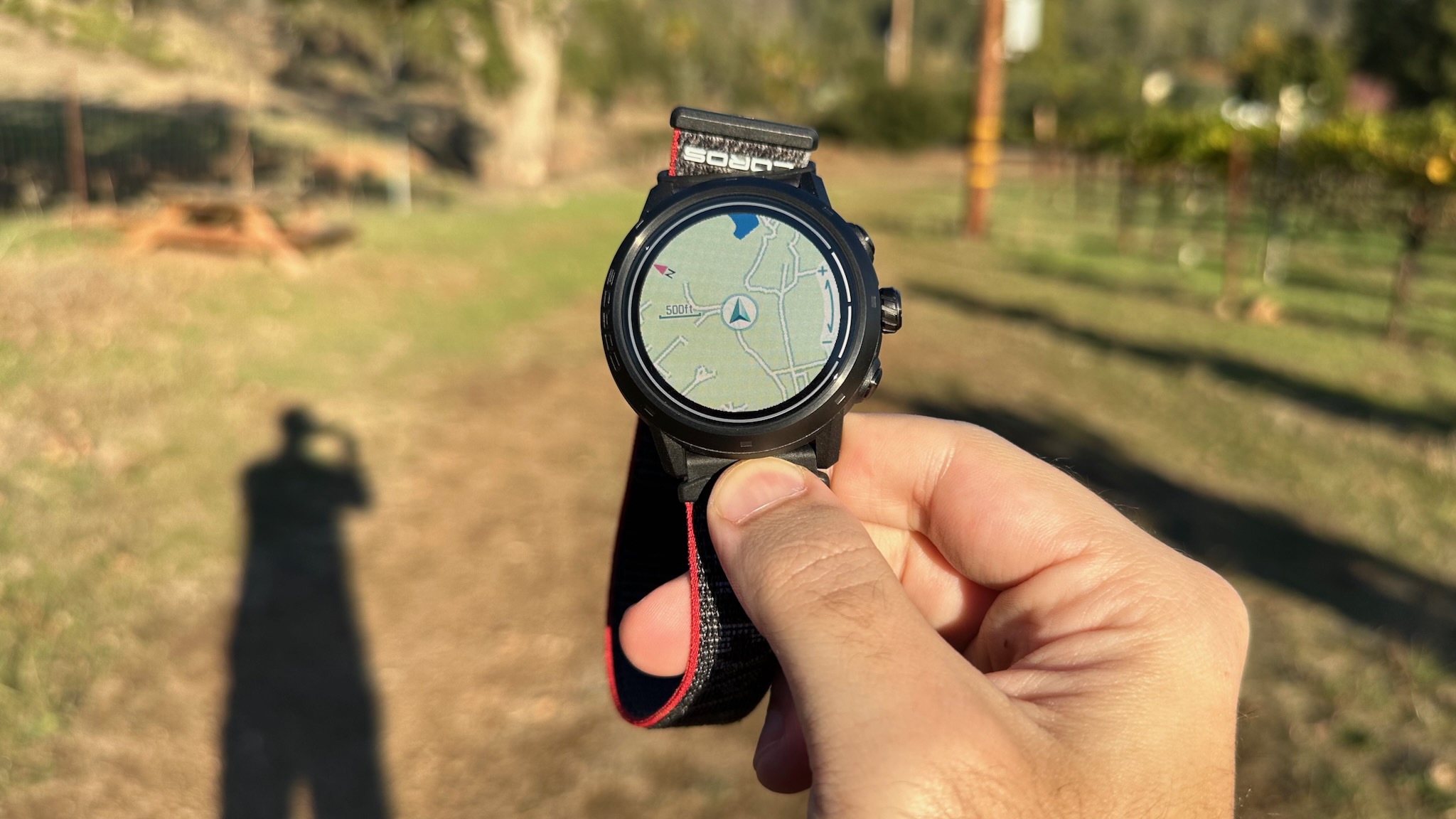
Both watches let you download GPX maps before you take a hike somewhere remote, but the APEX 2 "map" app is just a blank void without preparation. APEX 2 Pro buyers get the perk of pre-downloaded global landscape maps thanks to the extra storage space, showing your surroundings without an online connection — even if a GPX map will give you more exact paths. Add in checkpoints and back-to-start, and the Pro is a good choice for both casual hikers and serious mountaineers.
Otherwise, the jump from 8GB to 32GB of storage will let you store thousands more songs on the APEX 2 Pro. You'll need to own physical MP3 files until COROS starts supporting specific music apps — something COROS says it hopes to deliver by 2023 — as well as workout earbuds to sync to your watch.
You'll only be able to shuffle through the whole massive library, rather than use playlists. But I still appreciate having the option to leave my phone behind, and you can fit more music than most Android watches that have to share that storage space with apps.
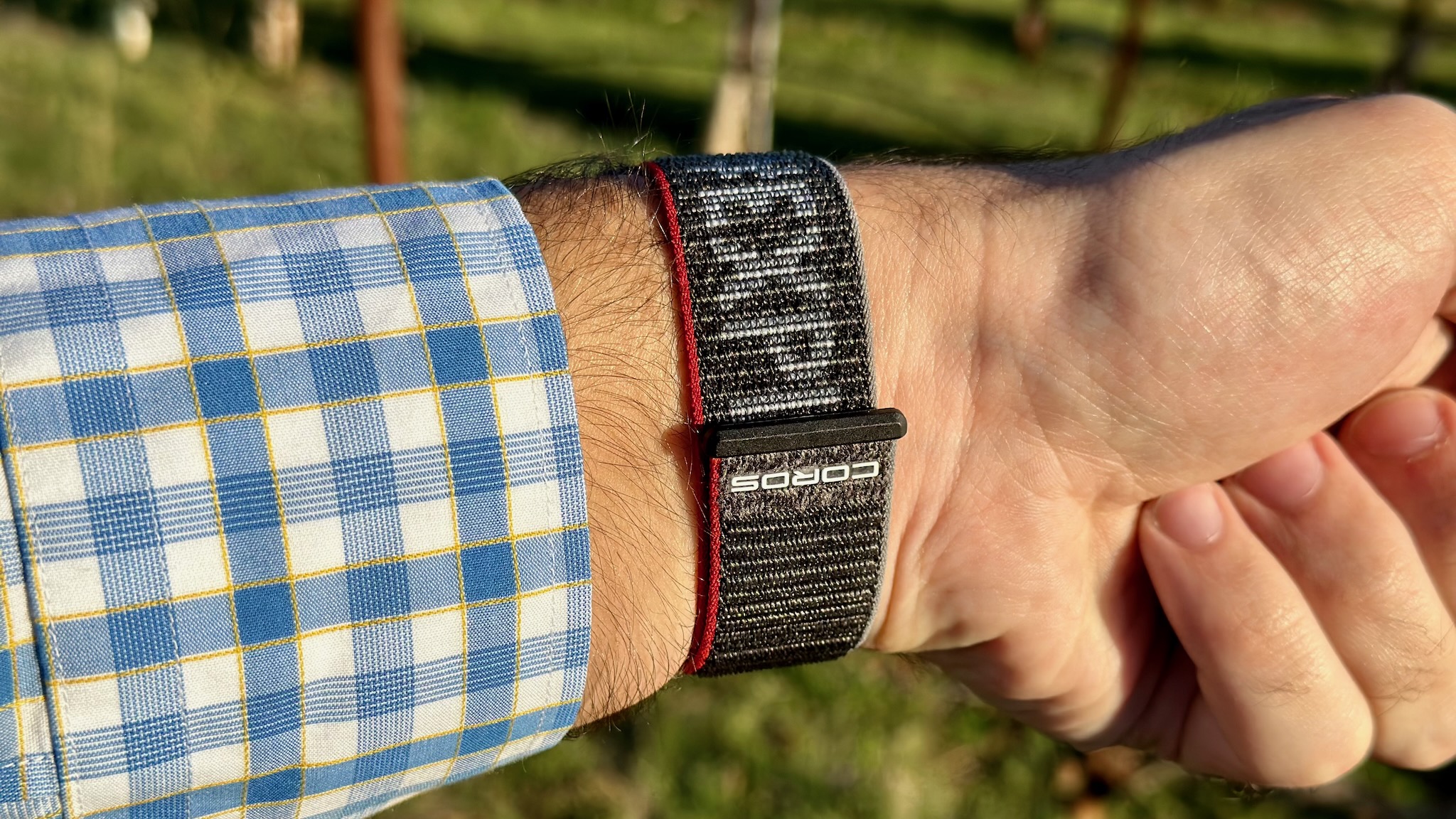
Aside from how heavy and thick the watch is, the COROS APEX 2 Pro has all the design choices you want in a premium outdoor watch. Compared to the plastic finish most running brands use, the titanium finish for the case and bezel looks great, and the bezel has a scratch-resistant PVD coating. The 1.3-inch MIP display hits a good sweet spot for displaying enough data without being overly large, with the industry-standard pixels per inch, and it's protected by Sapphire Glass from any scratches or falls as you run, bike, or climb.
Heavier than average, the APEX 2 Pro has the benefit of a default nylon strap to lessen its weight by 13g. You can always use any other 22mm quick-release strap, but the nylon is at least comfortably soft and very easy to adjust to get the right fit, even if it'll sop up water and sweat when silicone would repel it.
I can't judge the one other perk of the APEX 2 Pro — a Multi-Pitch Climbing Activity mode — because I don't have the strength for serious climbing...and I'm afraid of heights. But for the Alex Honnold types out there, this is the one significant reason to upgrade, assuming the watch's size doesn't get in the way.
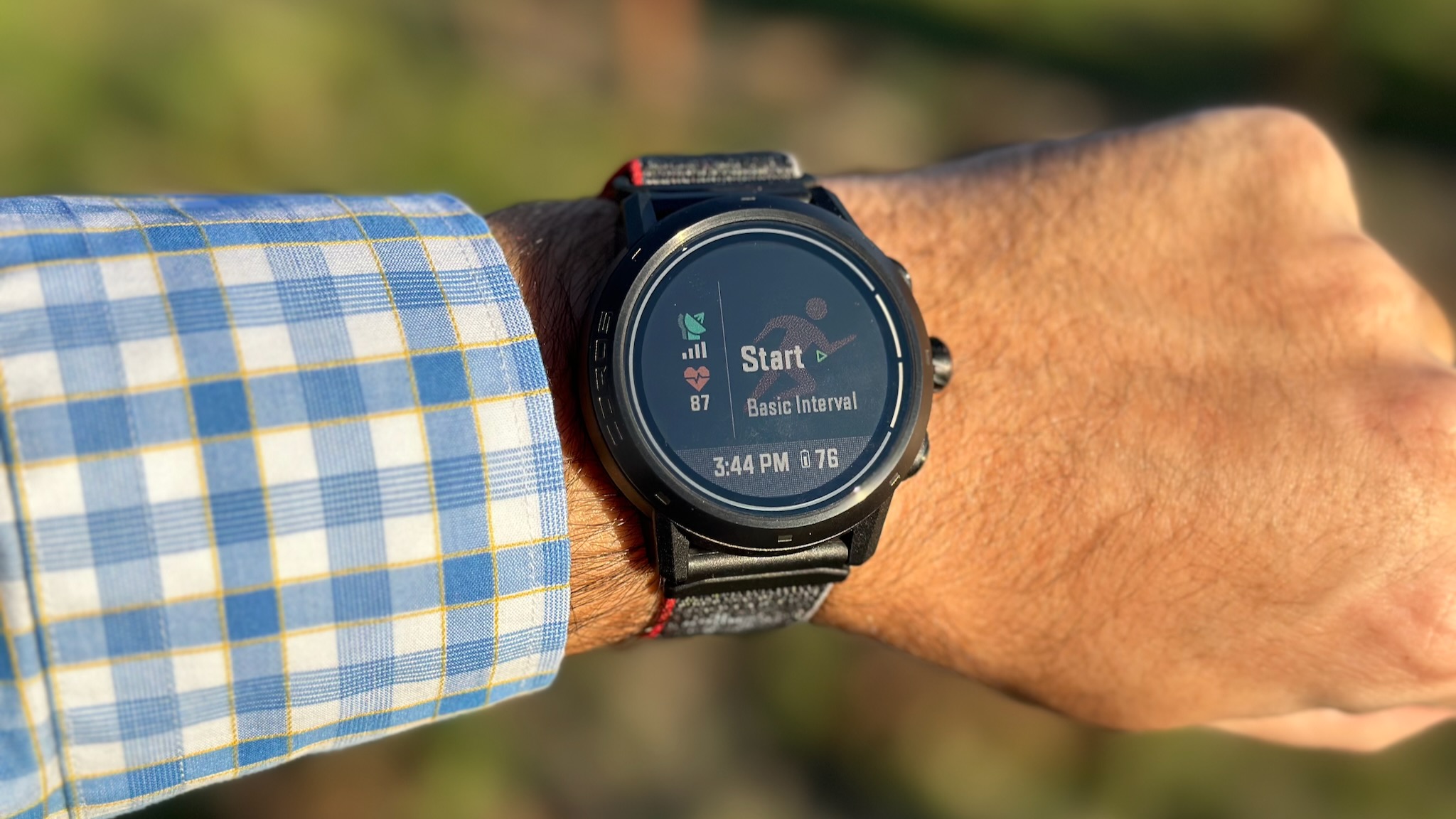
I don't want to be too repetitive with what I already covered in my APEX 2 review, so I'll simply say that there's a reason that a lot of marathoners have partnered with COROS (beyond whatever brand deals COROS made with Eliud Kipchoge and the rest), and briefly summarize all the perks you get with any APEX 2 watch.
Aside from some missing sensors you'd get on a Fitbit Sense 2 or Galaxy Watch 5 Pro, the APEX 2 Pro has all the essentials: heart rate and blood pressure monitoring, ECG spot checks for irregular heartbeats, an altimeter for better measuring effort at certain elevations, a compass for the aforementioned maps, both an accelerometer and gyroscope that'll combine for more accurate tracking in sports modes like swimming, and a wear detection sensor.
In my weeks with the watch, the heart rate results were largely very accurate and consistent across long races or in terms of continuous tracking throughout the day. Blood oxygen results were also more accurate, which I suspect is because the nylon strap gives you a tighter seal between the sensors and your wrist than a typical silicone strap.
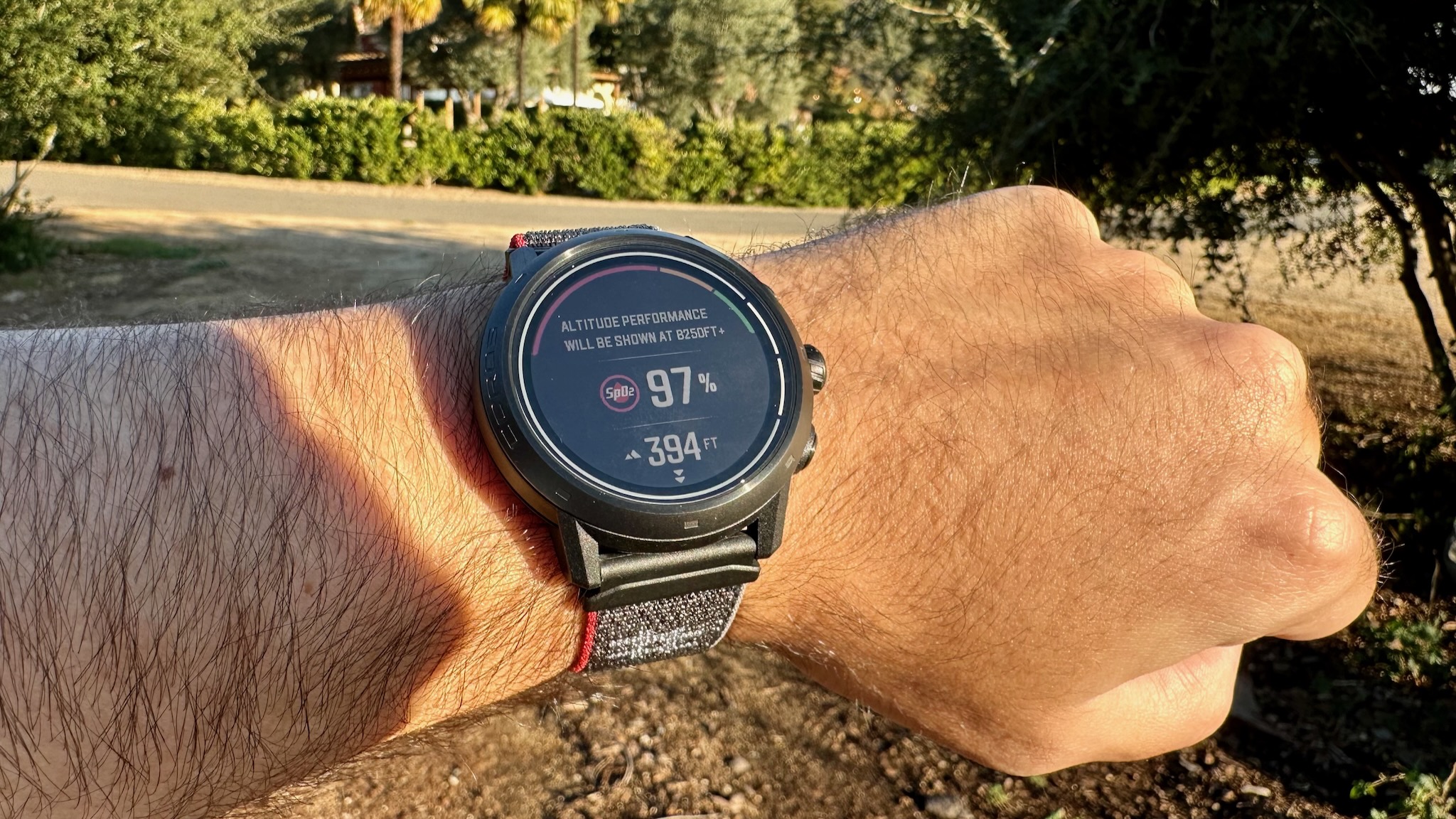
COROS EvoLab does an excellent job of taking your health and fitness data and giving an easy-to-understand summary of your current fitness level, training load, fatigue, and likely race pace for a 5K, 10K, half marathon, or marathon, among other information to help inform your training plan. It'll then tell you what your current "effort pace" is relative to your actual pace during a run, based on whether or not a 9-minute mile is especially difficult or easy for you.
COROS doesn't give you daily suggested workouts like Garmin, but it does have a ton of coach-made training plans that will guide you to hit a particular pace or race distance over the course of weeks. I'm currently using a COROS marathon training plan to try and increase my weekly mileage, and the scheduled workouts will guide you to stay within a specific threshold for heart rate, pace, or other specs like running power so you don't burn out or slack off.
COROS APEX 2 Pro: What you won't like
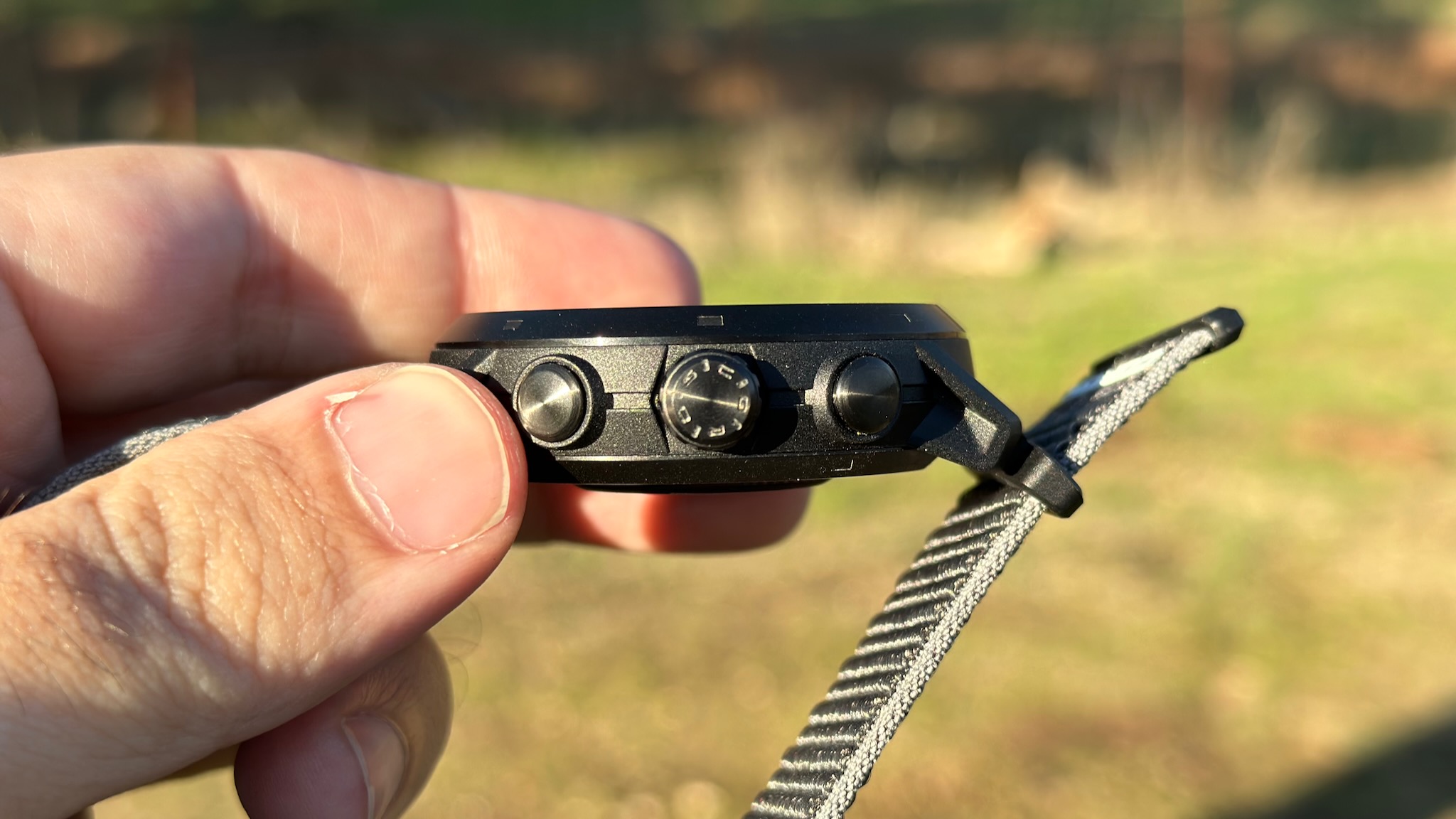
Revisiting an earlier point, the APEX 2 Pro is one of the thickest watches I've worn. Coros' website says the Pro is 14mm, while the specs chart its rep gave me says 15.8mm instead. For what it's worth, it's about as thick as my GW5 Pro, which measures about 15mm, so that's a good point of reference.
If you wear a silicone strap instead of the default nylon one, the APEX 2 Pro weighs 66g or 2.33oz. With the nylon strap, I'd say 53g is slightly above the borderline of what I'd want to wear for a long race; the 42g APEX 2 is just more comfortable, even if it, too, is thicker than the average watch.
The real point here is that you have to decide if the huge gains in battery life and the perk of dual-frequency GPS justify the size and cost difference. You can wear the Pro for much longer, but you won't enjoy wearing it that long because of the weight.
The APEX 2 can last 30 to 45 hours depending on whether you want All-Systems GNSS or not. That's long enough for several days of hiking or a 100-miler on a single charge. I'm not sure if anyone needs the numbers that the APEX 2 Pro offers. And while dual-frequency does work better, the difference for casual use isn't significant enough because your distance-to-effort ratio is still accurate, even if your tracking map isn't. It's only for true pros that traverse extreme environments where GNSS signals get bounced around.
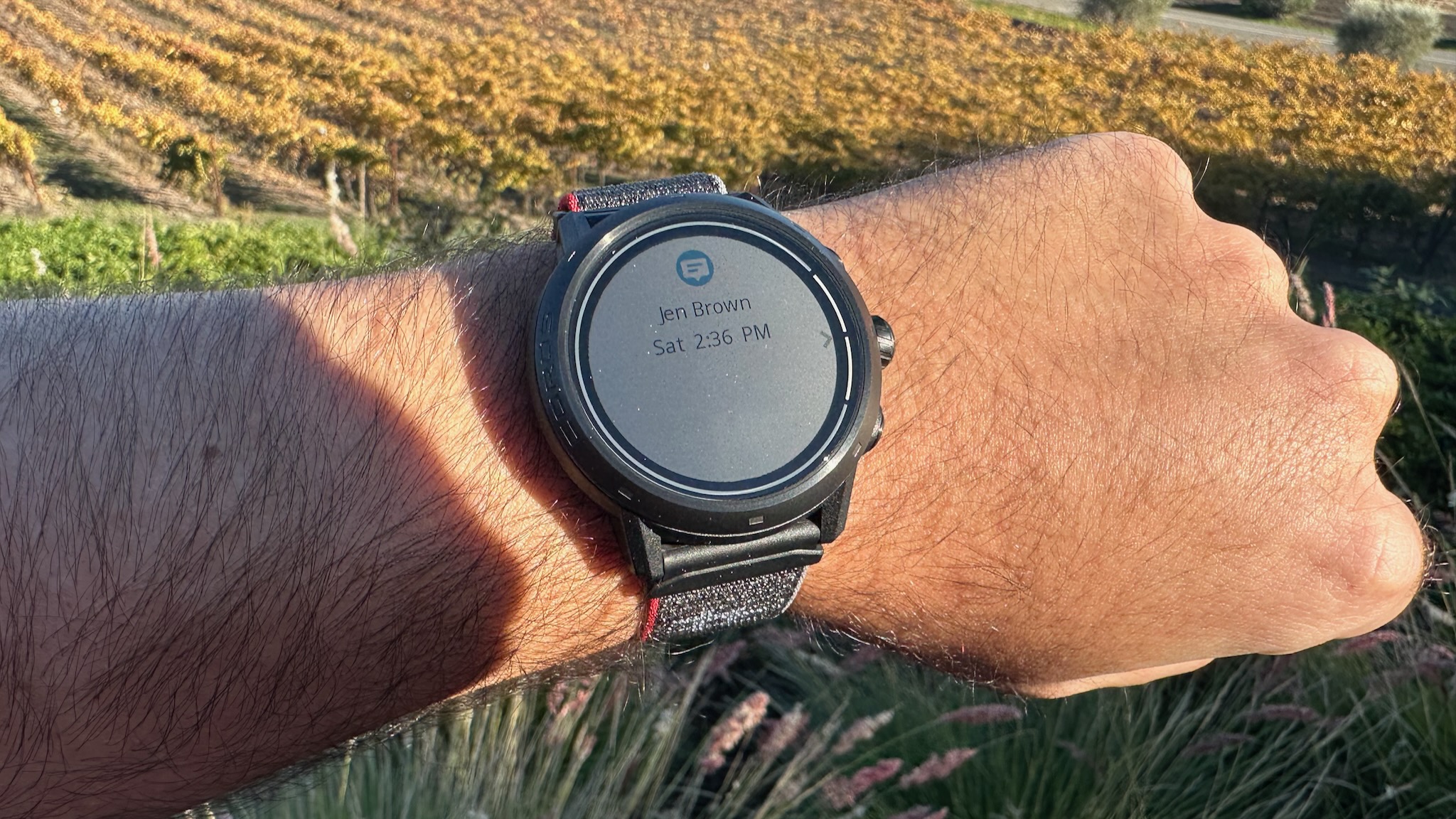
Otherwise, you're paying $100 more for 24GB of extra space for music and maps and a 0.1-inch-larger display. If you're already spending hundreds on a running watch, you can upsell yourself to the Pro. But I think the APEX 2 already delivers a solid experience, and the Pro just doesn't have enough exclusives to make itself attractive.
Beyond that, the APEX 2 Pro has the same downsides as the APEX 2. In terms of software, it lacks third-party apps and hides many of its features in a hard-to-navigate submenu. Text messages and notifications don't display emojis and sometimes have poor spacing and formatting. And the touchscreen seems too slow to respond to swipes, so I just rely on the digital dial instead.
As for hardware, it doesn't take advantage of its massive battery to offer continuous blood oxygen monitoring or heart rate variance (HRV) data. And it's missing some tools like NFC and hydration/ breathing/ menstrual tracking that you'd get on a competing watch.
The Competition
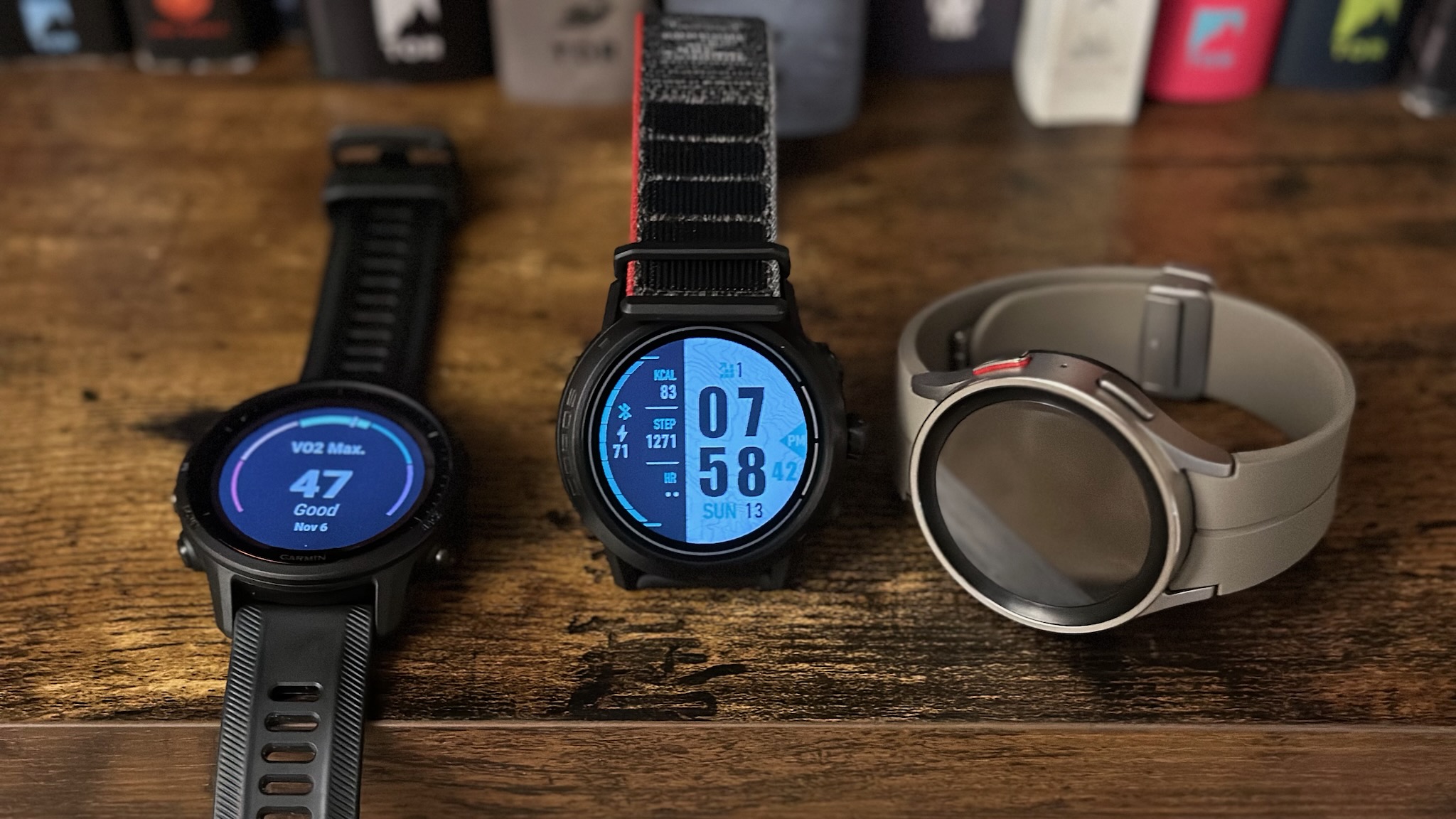
The main pound-for-pound competitor to the COROS APEX 2 Pro is the Garmin Forerunner 955. A 52g, 14.4mm watch with 1.3-inch touchscreen, 32GB of music and map storage, all-systems GNSS and dual-frequency GPS, all the same sensors, and similar tracked metrics, the $500 Forerunner 955 is equally worth considering. A few perks like NFC, daily suggested workouts, continuous HRV and SpO2 data, and a real-time stamina widget called Pacepro make the Garmin model a tempting rival.
If you want a running watch that gives you a more complete software experience, and don't mind the APEX 2 Pro's heavy and thick design, you could go with the Galaxy Watch 5 Pro. It lasts just three days per charge, but gives you a complete Wear OS experience with a full suite of apps, built-in speaker and mic for calls and speaking to Google Assistant, Samsung Health, and GPX maps with trackback.
COROS' other running watches are serious competition, too: the COROS PACE 2 and APEX 2. I've already broken down how the APEX 2 compares, but if you want to save even more money, the PACE 2 is an extremely lightweight and long-lasting watch that does miss out on features like SpO2 data, a touchscreen, all-systems GNSS, and so on. It's great if you want the basics, in other words.
COROS APEX 2 Pro: Should you buy?
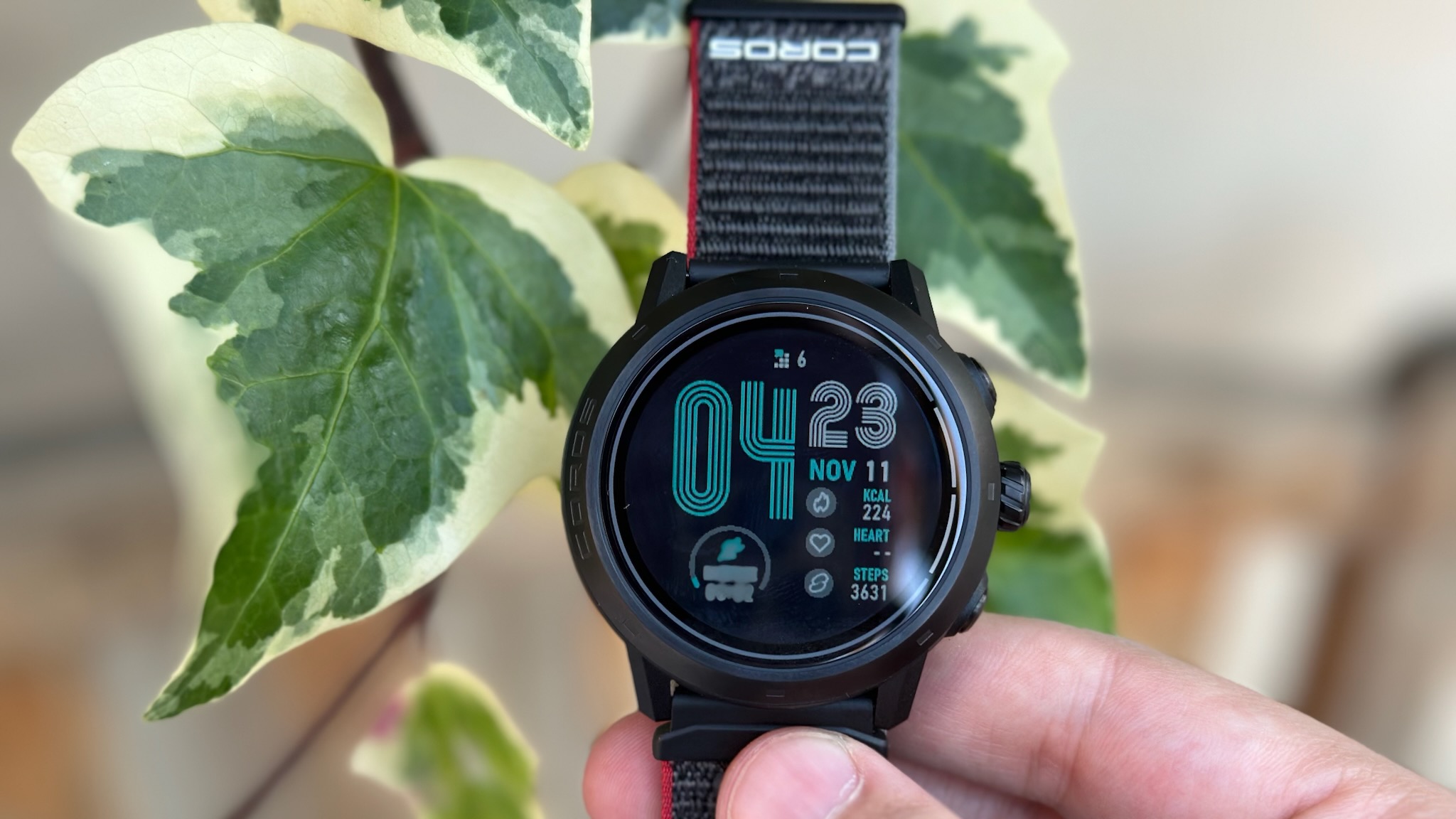
You should buy the APEX 2 Pro if...
- You need a ridiculously long battery life, ultra-accurate tracking, or both.
- You need more space for GPX maps and MP3 music files.
- You're a multi-pitch climber.
You shouldn't buy the APEX 2 Pro if...
- You don't want an overly heavy and thick watch.
- You want more smarts or an AMOLED display at this price.
- You don't need the Pro's few upgraded perks.
I'm not going to say you shouldn't buy the COROS APEX 2 Pro. Instead, I'll simply say that only a specific type of adventuring athlete should buy it. I appreciate that COROS didn't reserve a ton of useful features for its "Pro" watch to the detriment of the APEX 2. But that watch is what most people need.
Unlike other "Pro" watches, the COROS APEX 2 Pro is actually designed for the professionals that'll benefit from its perks. Either that or for more casual runners who want a battery massive enough that built-in music streaming won't immediately burn through the battery.

Michael is Android Central's resident expert on wearables and fitness. Before joining Android Central, he freelanced for years at Techradar, Wareable, Windows Central, and Digital Trends. Channeling his love of running, he established himself as an expert on fitness watches, testing and reviewing models from Garmin, Fitbit, Samsung, Apple, COROS, Polar, Amazfit, Suunto, and more.
